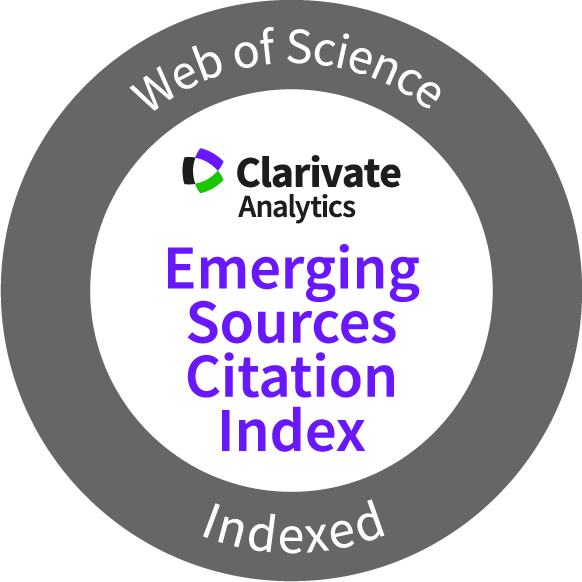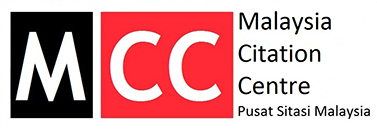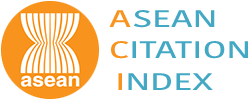SKIPJACK TUNA FISHING SEASON AND ITS RELATIONSHIP WITH OCEANOGRAPHIC CONDITIONS IN PALABUHANRATU WATERS, WEST JAVA
Keywords:
Catch, chlorophyll-a, sea surface temperature, season, skipjackAbstract
Skipjack tuna (Katsuwonus pelamis) is the main catch species in Indonesian Palabuhanratu waters. The dynamics of skipjack fishing areas are influenced by oceanographic parameters such as sea surface temperature and chlorophyll-a concentration. This study aims to predict the skipjack fishing season, analyze the dynamics of oceanographic conditions, especially the distribution of sea surface temperature and the distribution of chlorophyll-a, and determine the relationship between skipjack fishing season and the dynamics of the distribution of sea surface temperature and the distribution of chlorophyll-a in the waters of Palabuhanratu, West Java. Catch per unit effort analysis was used to determine the fishing season index, while the dynamics of sea surface temperature and distribution of chlorophyll-a were analyzed from MODIS image data. The results showed that skipjack fishing season in Palabuhanratu waters was from July to November. Monthly sea surface temperatures range from 26-30℃ with an average value of 29℃. The distribution value of chlorophyll-a concentration ranged from 0.09 mg/m3 to 0.51 mg/m3 with an average value of 0.23 mg/m3. Skipjack tuna production tends to increase when sea surface temperatures are low and chlorophyll-a concentrations increase.
Downloads
Metrics
References
Andrade, H.A. & Garcia, A.E. 1999. Skipjack tuna fishery in relation to sea surface temperature off the Southern Brazilian Coast. Fisheries Oceanography, 8(4): 245-254. DOI: https://doi.org/10.1046/j.1365-2419.1999.00107.x
Brown, O.B. & Minnet, P.J. 1999. Modis infared sea surface temperature algorithm, Algorithm Teoritical Basis Document (ATBD) 25 version 2.0, Under Contract Number NAS5-31361 University of Miami, Miami.
Damora, A., Fazilla, F., Perdana, A.W., Rahmah, A., Aprilla, R.M. & Salmarika, S. 2021. Population dynamics of skipjack tuna (Katsuwonus pelamis) in the northern and western waters of Aceh. IOP Conference Series: Earth and Environmental Science, 674: 012089 DOI: https://doi.org/10.1088/1755-1315/674/1/012089
Dollu, E.A. & Muksin, R. 2019. Sustainable catching analysis of cakalang (Katsuwonus pelamis) in Pantar Strait Waters, Alor Regency Nusa Tenggara Province. International Journal of Fisheries and Aquatic Studies, 7(2): 282-286.
Fadhilah, A.F. & Dewinta. 2021. Determination of fishing season mackerel (Rastreligger kanagurta) in The Waters of Belawan, Sumatera Utara. IOP Conference Series: Earth and Environmental Science, 782: 042009. DOI: https://doi.org/10.1088/1755-1315/782/4/042009
Fraile, I., Murua, H., Goni, N. & Caballero, A. 2010. Effects of environmental factors on catch rates of FAD-associated yellowfin (Thunnus albacares) and skipjack (Katsuwonus pelamis) tunas in the western Indian Ocean, Paper presented in IOTC 12th session of working party of tropical tuna. IOTC-2010-WPTT-46, Seychelles.
Gulland, J.A. 1982. Manual of Methods for Stock Assessment. FAO, Rome.
Gabric A. & Parslow J. 1989. Effect of physical factors on the vertical distribution of phytoplankton in eutrophic coastal waters. Australian Journal Marine Freshwater Resources, 40: 559-569. DOI: https://doi.org/10.1071/MF9890559
Hamka, E. & Rais, M. 2016. Determination of fishing catching season (Decapterus sp.) in East Waters of Southeast Sulawesi. Jurnal IPTEKS PSP, 3(6): 510-517.
Hsu,T.Y. Chang Y., Lee M., Wu R.F. & Hsiao S.C. 2021. Predicting skipjack tuna fishing grounds in the Western and Central Pacific Ocean based on high-spatial-temporal-resolution satellite data. Remote Sensing, 13(5): 861. DOI: https://doi.org/10.3390/rs13050861
Imron, M., Tawaqal, M.I. & Yusfiandayani, R. 2021. Fishing ground and tuna productivity by tuna longline based on Benoa Bay, Bali, Indonesia. Biodiversitas, 22(2): 961-968. DOI: https://doi.org/10.13057/biodiv/d220252
Indian Ocean Tuna Commission (IOTC). 2016. Report of the 18th Session of the IOTC Working Party on Tropical Tunas.. IOTC–2016–WPTT18–R[E]. IOTC, Seychelles.
Karman, A., Iksan, K., Surahman & Sunarti. 2016. Relationship between sea surface temperature and chlorophyll-a with the production and productivity of skipjack on Bacan Island Waters. International Journal of Emerging Research in Management &Technology, 5(8): 116-122.
Kurniawan, W. 2015. Fishing season of skipjack tuna in the southern waters of West Java and its relation to oceanographic parameters. Oseana, 40(4): 53-60.
Laevastu, T. & Hayes, M.L. 1981. Fisheries Oceanography and Ecology. Fishing News Book, Ltd, England. 199 pp.
Lehodey, P., Bertignac, M., Hampton, J., Lewis, A. & Picaut, J. 1997. El Nino southern oscillation and tuna in the Western Pacific. Nature, 389: 715-718. DOI: https://doi.org/10.1038/39575
Maiyza, S.I. & El-karyoney, I.A. 2020. Seasonality of fish catch and gish prices in natural Egyptian fisheries. Egyptian Journal of Aquatic Biology & Fisheries, 24(1): 541-552. DOI: https://doi.org/10.21608/ejabf.2020.74473
Nurani, T.W., Wahyuningrum, P.I., Wisudo, S.H., Endriani, R. & Komarudin, D. 2015. Catch of tuna fish on trolling fishing in Indian Ocean Waters, Southern Coast of East Java related to sea surface temperature variability. Malaysian Applied Biology, 44(3): 25–28.
Nurani, T.W., Wahyuningrum, P.I., Wisudo, S.H., Arhatin, R.E. & Gigentika, S. 2016. The dynamics of fishing season and tuna fishing in The Indian Ocean Waters (FMA) 573. International Journal of Development Research, 6(7): 8288-8294.
Nurhayati, M., Wisudo, S.H. & Purwangka, F. 2018. Productivity and seasonal pattern of yellowfin tuna (Thunnus albacres) fishing in fisheries management area 573. Jurnal Akuatika Indonesia, 3(2):127-135. DOI: https://doi.org/10.24198/jaki.v3i2.23400
O’Reilly, J.E., Maritorena, S., Mitchell, B.G., Siegel, D.A., Carder, K.L., Garver, S.A., Kahru, M. & McClain, C. 1998. Ocean color chlorophyll algorithms for SeaWiFS. Journal Geophysics Resource, 103(11): 24937-24953. DOI: https://doi.org/10.1029/98JC02160
Polovina, J.J., Howel, E., Kobayashi, D.R. & Seki, M.P. 2001. The transition zone chlorophyll front, a dynamic global feature defining migration and forage habitat for marine resources. Progress in Oceanography, 49: 469-483. DOI: https://doi.org/10.1016/S0079-6611(01)00036-2
Ramlah, S., Sara, L., Padangaran, A. & Tadjuddah, M. 2020. The status of catch per unit effort (CPUE) and utilization rate of skipjack tuna (Katsuwonus pelamis) in The Kolaka Waters, South Sulawesi, Indonesia. International Journal of Scientific & Technology Research, 9(1): 977-982.
Sachoemar, S.I., Yanagi, T. & Aliah, R.S. 2012. Variability of sea surface chlorophyll-a, temperature and fish catch within Indonesian region revealed by satellite data. Marine Research in Indonesia, 2: 75-87. DOI: https://doi.org/10.14203/mri.v37i2.25
Setyadji, B., Pranowo, W.S. & Amri, K. 2018. Sea-air impacts on fishing season of hand line skipjack tuna Katsuwonus pelamis (Linnaeus, 1758) in Southern Pacitan Waters, East Java-Indonesia. Omni-Akuatika, 14(1): 1-10. DOI: https://doi.org/10.20884/1.oa.2018.14.1.207
Waileruny, W., Wiyono, E.S., Wisudo, S.H., Purbayanto, A. & Nurani, T.W. Bio-economics analysis of skipjack (Katsuwonus pelamis) fishery on Banda Sea-Maluku Province. International Journal of Science: Basic and Applied Research (IJSBAR), 14(1): 239-251.
Wiryawan, B., Loneragan, N., Mardhiah, U., Kleinertz, S., Wahyuningrum, P.I., Pingkan, J., Wildan, Timur, P.S., Duggan, D. & Yulianto, J. 2020. Catch per unit effort dynamic of yellowfin tuna related to sea surface temperature and chlorophyll in Southern Indonesia. Fishes, 5(28): 1-16. DOI: https://doi.org/10.3390/fishes5030028
Wiyono, E.S. 2001. Optimasi Manajemen Perikanan Skala Kecil di Teluk Palabuhanratu, Jawa Barat. IPB University, Bogor. (Indonesian).
Zainuddin, M. 2011. Skipjack tuna in relation to oceanographic conditions of Bone Bay using remotely sensed satellite data. Jurnal Ilmu dan Teknologi Kelautan Tropis, 3: 82-90. DOI: https://doi.org/10.28930/jitkt.v3i1.7837
Published
How to Cite
Issue
Section
Any reproduction of figures, tables and illustrations must obtain written permission from the Chief Editor (wicki@ukm.edu.my). No part of the journal may be reproduced without the editor’s permission





















